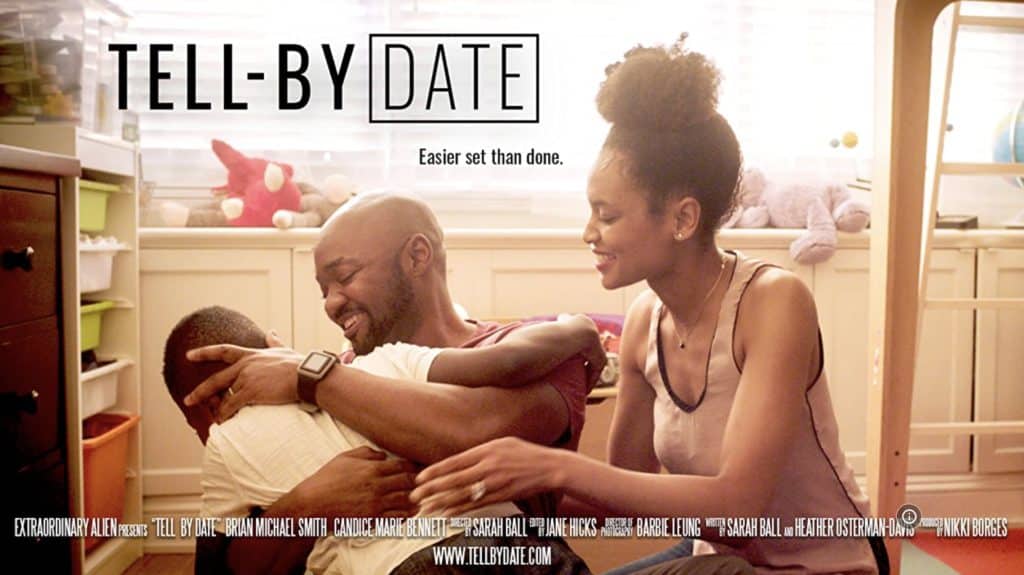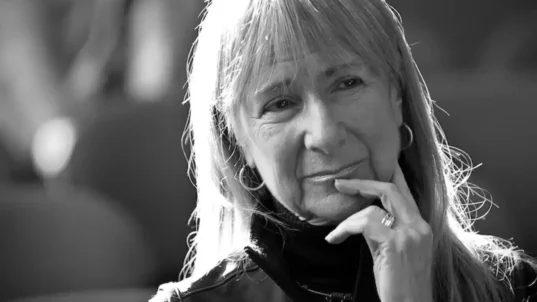
Tell-By Date a film from Sarah Ball
Session 2 of a Film & Conversation Series on LGBTQ+ Generations
On November 12th, we watched Tell-By Date, a short film about a trans father who struggles with telling his young son that he is not his biological father and finds that he must also confront his own father. After the film, we joined together in exploratory conversations to draw out the different concerns and challenges raised by the film–issues relating to gender, sexuality, the meaning of being a parent, and more. At the end of our discussions, we also brainstormed some possibilities to address these concerns and challenges.
This was the 2nd of 3 sessions in a films and conversations series on the theme of LGBTQ+ Generations. This online discussion series is organized by the Interactivity Foundation in partnership with the Capitol Hill Village, a member-driven, volunteer-based local organization that engages neighbors in the Capitol Hill neighborhood to build a vibrant, inclusive, and age-friendly community that empowers everyone to thrive and live meaningful, purposeful lives.
Please Register to join us this Friday, November 18th at 4-5:30 pm (ET) to watch and discuss Take Me to Prom, the final film in this series.
Here’s a summary of what we discussed:
Concerns and Challenges
- The varied and deep anxieties that go with being a parent–these get magnified in situations where a parent isn’t the biological parent
- The challenge of recognizing you don’t have to be perfect as a parent
- Acceptance of gender identities and sexual orientation within a family (acceptance of children as they are, acceptance of parents as they are, etc.)
- The importance of inclusivity in a healthy family
- How do we help parents to be more accepting of the gender identities and sexuality of their kids?
- Focusing on the positive experience of being a straight parent/grandparent when raising LBTQ+ kids/ grandkids—they’ll grow up with a healthy acceptance of themselves
- Expanding the “family” when others take on family roles to help LGBTQ kids
- Expanding the notion of fatherhood (and parenting)–being there for the child makes the difference, not biology
- Reaching general social acceptance of people as they are, with gender diversity and diverse sexual identities
- How do we create greater familiarity with, and openness to, different forms of gender identity and sexuality?
- Leaning into the generational shift where younger generations may help teach the older generations greater acceptance and inclusivity
- Recognizing that cultural norms are changing to be more inclusive
- Reaching a broader societal understanding of sex and gender beyond the binary
- Other cultures and times embrace understandings of fluidity or a broader continuum in regard to gender, sex, and sexuality
- Understanding that there are many ways to be intersex, many different ways to express our gender and sexual identities, etc.
- We need to get beyond the fixation on bathroom access
- There’s a challenge of repeatedly “coming out” for LGBTQ individuals as they enter new situations
- When do we talk to kids about sexuality and gender identity?
- Who has the responsibility to talk to kids about sexuality and gender identity?
- Parents often hold things back or even lie, thinking that they are protecting their children
- How do we (or should we) talk to children about the plurality gender and sexual identities?
- The challenge of “double diversity” issues raised by this film (the father is worried about his son having to be both “the Black kid” and the kid with a trans parent)
- We need to explore how all of us have multiple (and evolving) identities
- The challenge of unfamiliarity with transgender issues in our society
- The school board problems that we are having in our society today
- Rural vs. urban contexts differ in relation to accepting trans people and LGBTQ+ more broadly
- The challenge of a rural context where it is getting worse every year for LGBTQ+ community members: the town used to be very accepting, but now there’s a backlash that is less accepting of diversity
- Economic and educational dimensions: when higher-paying jobs left the area, the more highly educated residents left the area as well
- The challenge of toxic masculinity–driven by fear of straying from a narrow path of what a “man” can be
- Men often police these gender norms about each other and themselves
Possibilities to Address these Challenges and Concerns
- Institutionalize the recognition of gender beyond the binary (create forms that have more than male/female designations)
- Families need to learn how to be accepting of LGBTQ+ family members
- When children are rejected by parents, we need to help them realize that there’s nothing wrong with the child; it’s the parents
- Peers can be a kind of family when the biological family tunes out
- We need greater exposure to, and interactions with, people who are different from us
- When you forge relationships, then you see people as people and not as a label and not as a threat to who you are
- We could have structured activities, like required public service, that puts us in contact with different people (analogous to role of military playing an integrating function across the country)
- We could have centers that teach people how to be more inclusive
- We need to learn to accept people for who they are in their self-determined gender identity and sexuality
- Education is essential
- Anti-LGBTQ attitudes are learned (people weren’t born with it), so they can be unlearned–and not taught to begin with
- People need a better understanding of the science of human sexuality and gender
- Unlearning of bad attitudes can happen through providing more visibility to LGBTQ+ people
- The importance of “Pride”—having more out LGBTQ+ people in public
- We need more representation of LGBTQ+ individuals in popular media
- We need leadership to move us toward greater inclusivity
- At the policy level we could:
- Implement federal non-discrimination laws protecting LGBTQ+ individuals in employment, healthcare, adoption, etc. (federal laws would help avoid discrimination if you cross state lines)
- Require health insurance to cover the costs of gender-confirming surgeries and therapies (removing or lowering the financial burden and reducing stress on individuals and families)
- Resolve the conflict with those who use “religious liberty” as a basis for anti-LGBTQ+ discrimination
- Provide support for LGBTQ+ rights around the world
- We could foster and support more inclusive social norms, like:
- Adding your pronouns to your name tags, etc.
- Normalize calling trans individuals by their chosen names, using their chosen pronouns, etc.
- Expecting that support and acceptance begins in the family (e.g. make it the social norm to accept transgender family members)



